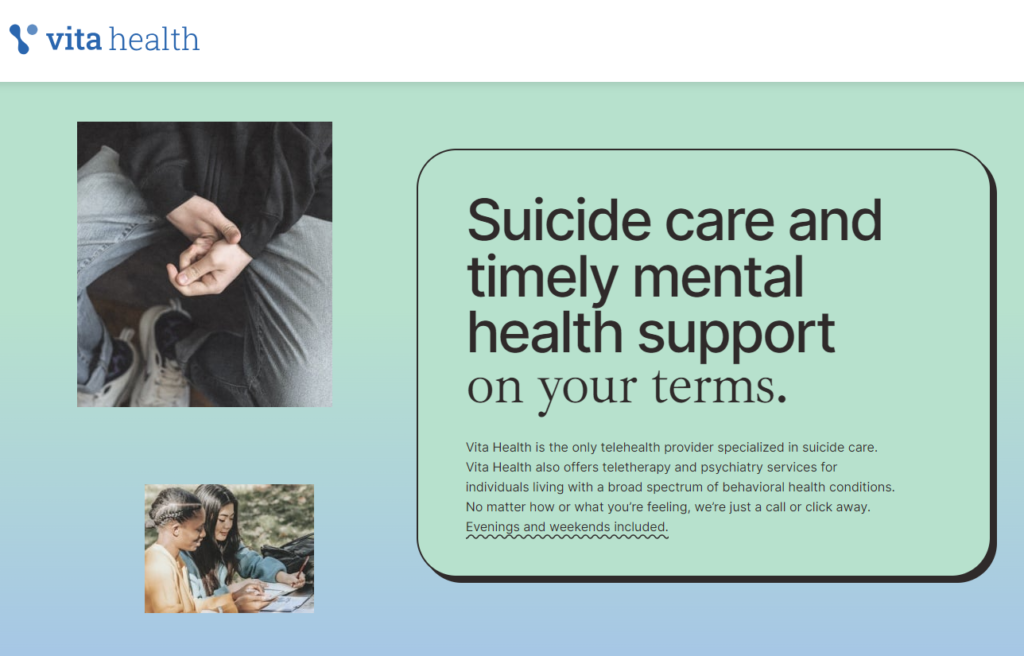
What You Should Know:
- Vita Health, the first provider of clinically validated suicide prevention through innovative care management, announced today the close of a $22.5M Series A funding round.
- The funding will support the rapid expansion of life-saving services targeting youth and adults nationwide. The Vita behavioral health care pathways are based on the founding team’s successful clinical trials published in JAMA, The American Journal of Psychiatry and thousands of patient encounters demonstrating reductions in suicide attempts by more than 60% and deaths by up to 80%.
Diverse Consortium Backs Vita Health’s Specialized Telehealth Solutions for Mental Health Crisis
A diverse group of investors, including LFE Capital, Athyrium Capital Management, Flare Capital Partners, CVS Health Ventures, CU Healthcare Innovation Fund, Connecticut Innovations, and HopeLab, participated in the funding round for Vita Health. Vita Health initially aimed to tackle the rising suicide rates across all age groups but has expanded its mission to address the broader youth mental health crisis, covering conditions such as anxiety and depression.
Suicide ranks as the second leading cause of death among teens and college students, and is a top-five killer for adults, according to the Center for Disease Control and Prevention. In 2021, there were over 1.7 million suicide attempts in the US. Vita Health stands out as the only telehealth provider specializing in suicide care, while also offering teletherapy and psychiatry services for various behavioral health conditions. Founded by a consortium of leading suicide risk experts and seasoned behavioral health innovators, Vita Health’s approach aims to address the root causes behind suicide.
“Our collective motivation was to shift a very deadly curve in our society that has far reaching and lasting implications for all involved,” says Vita Health co founder and chief executive officer, Lynn Hamilton. “We are humbled by the participation from a broad group of sophisticated, experienced, and strategic investors. With a growing roster of health plan partners, provider partners, employers, colleges and universities, we are expanding our reach to directly address the most challenging mental health problems in the U.S.”

